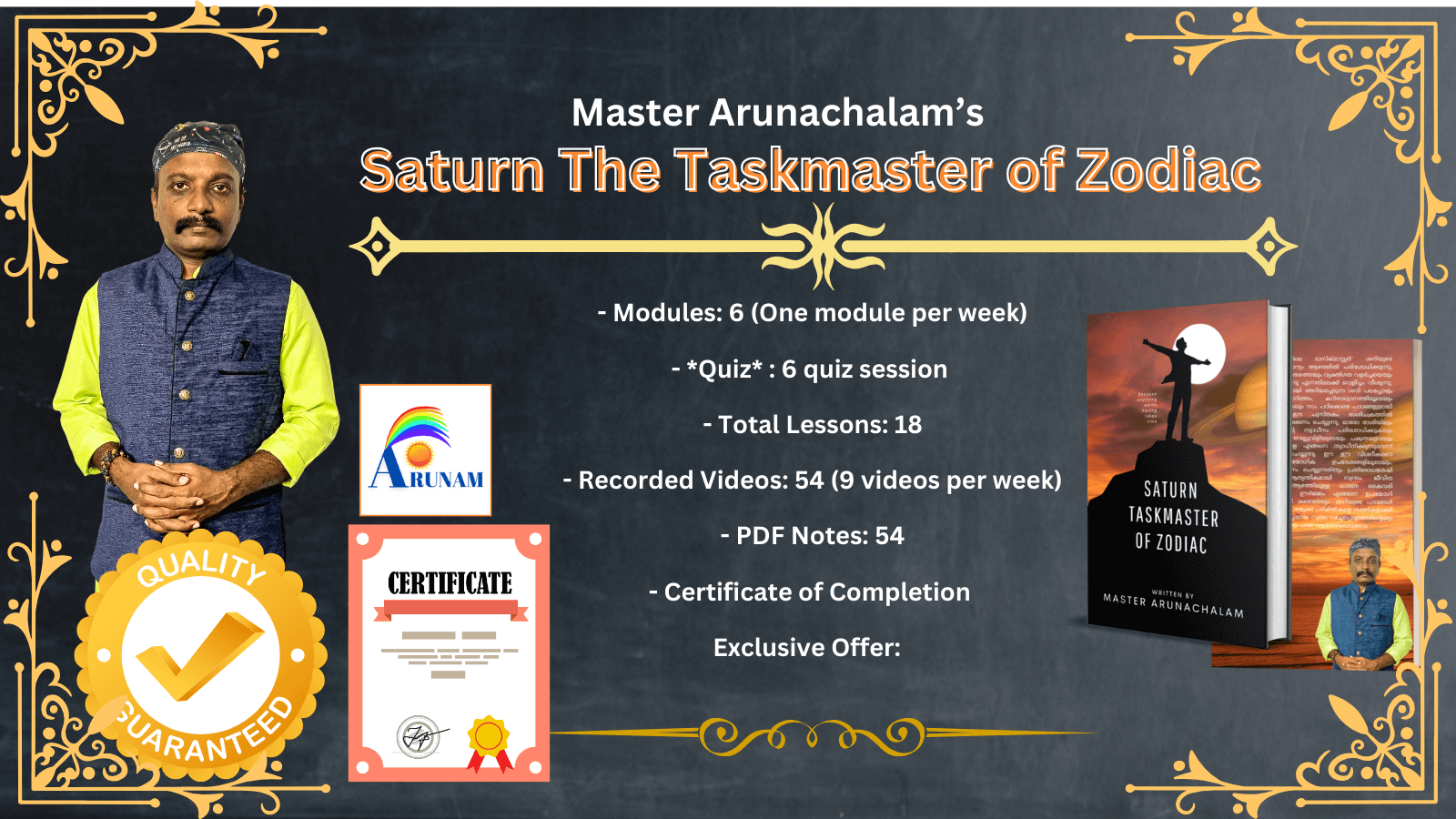Master Arunachalam' s Blogs
The Mystical influence of Saturn

About Saturn
Saturn can be seen as a challenging planet
Today, we’re going to talk about one of the most important aspects of Saturn’s influence in astrology: its role in personal growth. While Saturn can be seen as a challenging planet, it is also the one that offers us the greatest potential for maturity, wisdom, and transformation. Understanding Saturn’s influence in your chart is key to unlocking growth in every area of life. Let’s explore how Saturn plays a critical role in shaping your personal development.

1. Saturn as the Teacher of Life’s Lessons
Saturn is often referred to as the great teacher or taskmaster of the zodiac. Unlike other planets that bring fast changes or fleeting influences, Saturn teaches us through patience, discipline, and hard-earned lessons. Its energy asks us to slow down, reflect, and face challenges head-on, allowing us to build inner strength and resilience. Without Saturn, we wouldn’t learn the value of responsibility, nor would we fully understand the consequences of our actions. It’s through Saturn that we develop the tools to deal with adversity and grow into more mature, grounded individuals.
2. Saturn’s Role in Emotional and Spiritual Growth
Saturn’s influence isn’t just about external success—it’s also deeply connected to our emotional and spiritual growth. Often, the challenges that Saturn brings are linked to our deepest fears, insecurities, or limitations. By facing these fears, Saturn helps us break free from patterns of avoidance and denial. Whether it’s fear of failure, fear of rejection, or fear of responsibility, Saturn pushes us to confront these issues, leading to emotional resilience and personal empowerment.In spiritual terms, Saturn is associated with karma and the lessons we must learn for the evolution of our soul. When Saturn is prominent in our charts, it points to areas where we need to grow on a soul level. The difficulties we encounter are meant to teach us humility, patience, and the ability to let go of control, all of which are essential for spiritual maturity.
3. Saturn as a Guide to Self-Mastery
Ultimately, Saturn’s role in astrology is to guide us toward self-mastery. By facing Saturn’s lessons with determination and responsibility, we can overcome obstacles that once seemed insurmountable. Saturn teaches us that growth doesn’t come through shortcuts—it comes through persistence, dedication, and a willingness to embrace challenges.When we learn to work with Saturn’s energy, we stop seeing difficulties as roadblocks and start seeing them as opportunities for growth. This shift in perspective allows us to harness Saturn’s power in a way that fosters not just personal success, but also inner peace, wisdom, and fulfillment.

4. Building Foundations for Long-Term Success
While Saturn’s lessons may be tough, they are always meant to prepare us for long-term success. When Saturn touches a particular area of your life—whether it’s career, relationships, or self-identity—it asks you to create a solid foundation that can withstand the test of time. In this way, Saturn encourages us to build something lasting. It doesn’t give quick or easy results, but when we work with Saturn’s energy, we can achieve results that are enduring and meaningful.For example, Saturn in the 10th House teaches us the value of hard work in career and public life, pushing us to build a reputation based on merit and perseverance. Similarly, Saturn in the 7th House requires us to approach relationships with a sense of duty, responsibility, and commitment. By engaging with these energies, we create bonds and structures that stand strong through life’s ups and downs.
5. Personal Transformation Through Saturn’s Transits
One of the most transformative aspects of Saturn’s influence comes through its transits. When Saturn moves through a particular house or makes aspects to planets in your natal chart, it brings important life lessons that shape your future. While these transits can be challenging, they are often the times when we experience the most profound growth.For instance, Saturn returns—occurring roughly every 29 years—are famous for being periods of life-changing reflection and transformation. During a Saturn return, we’re asked to reassess our path, confront what isn’t working, and step into a new phase of maturity. Whether it’s the first Saturn return in your late 20s or subsequent returns later in life, these periods are key turning points in your personal development.

